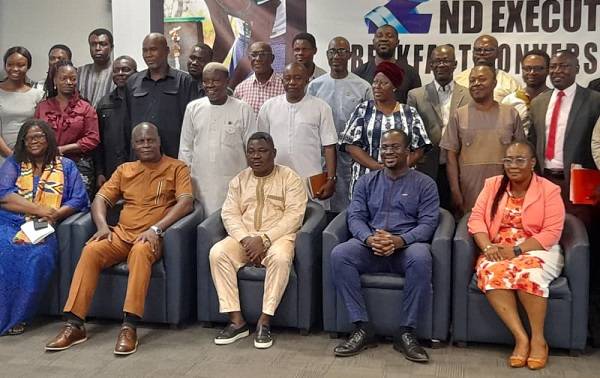
The Ministry of Sanitation and Water Resources has reiterated its commitment to step up moves to strengthen Water Sanitation and Hygiene (WASH) systems in the country.
Despite significant achievements in the sector within the past few years, it said, the Ministry was prepared to support efforts and intensify collaborations with stakeholders to work towards realising the government’s agenda.
“This is a reminder that despite the many good initiatives introduced by government and development partners, we still face challenges and a lot had to be done to achieve success,” it stated.
This commitment was made at the secondmulti-stakeholder executive breakfast conversation in Accra on Wednesday.
It was organised by World Vision Ghana in partnership with MSWR on the theme “Metropolitan, Municipal and District Assemblies and sustainable WASH delivery.
The Deputy Minister, Mr Amidu Issahaku Chinna, who spoke on behalf of the Minister underscored the importance of such engagement that had yielded positive results which will provide safe drinking water and improved sanitation to everybody.
“As Ghana has not recorded any incidence of cholera is enough testimony to the fact that we are doing certain things right and that is an achievement we should all be proud of and celebrate as sector practitioners.
He said the 2030 Sustainable Development Agenda recognised the centrality of water resources and the vital role that improved drinking water, sanitation and hygiene services played in advancing other related areas such as health, education, equity and poverty reduction.
Mr Chinna said a presidential compact for water, sanitation and hygiene will soon be developed to illustrate and reinforce government’s leadership and commitment to make universal access to WASH services for all Ghanaians a reality.
The National Director of World Vision International –Ghana, Dickens Thunde, said while the government had made giant strides in the provision of safe drinking water for its citizens the same could not be said about improved basic sanitation and open defecation.
He said access to safe drinking water and improved toilets in schools and health care facilities were equally problematic and that was why there was the need for concerted efforts to improve the situation.
BY BENEDICTA GYIMAAH FOLLEY






